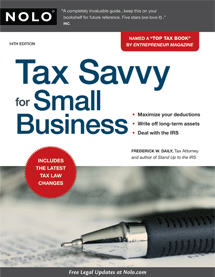Per this analysis from Taxes -the Tax Magazine, the Supreme Court has decided in favor of the IRS in a suit brought by the Mayo Foundation. The details of the suit are not important unless you are a resident physician who would like to be classified as a student instead of an employee.
However, what is important is how the Court decided the case, ie, the standard to which they (and all the other courts that follow the Supreme Court) will hold IRS regulations.
And it’s not good news for us. IRS regulations are the rules that the IRS comes up with to enforce tax laws. The tax laws that Congress passes can be maddeningly vague or just poorly-written. When a new tax law is changed or created, tax professionals and the IRS try to figure out exactly how and to who it applies.
To help us out, the IRS will draft regulations pertaining to a law. However, I must point out, they are not the law – just one way to interpret the law. And taxpayers challenge the IRS rules, suggesting that Congress may have intended something other than what the IRS says.
Well, that will be much harder to prove since the Mayo decision. The Supreme Court, ultimate court of the land, chose to give much more weight to IRS regulations. Courts will now defer to the IRS regulations unless Congress has revisited the issue and unless they are clearly contrary to the law or capricious in nature. I think this shifts the burden onto the taxpayer to prove this higher standard. The judicial repercussions are still unfolding. We’ll see what happens…
Wendy Litten, EA

4400 Route 9 South
Freehold, NJ 07728
(609) 259-0759taxes@wendylitten.com
I’m Wendy Litten, EA. Everyday, I help my clients with filing personal and business tax returns and QuickBooks. However, with increased IRS activity, I’ve also been specializing in tax problem-solving, including IRS notices, back taxes, overdue returns, liens, offers in compromise and all types of IRS problems. Here, I will share my experiences and hope to help those in similar situations.


